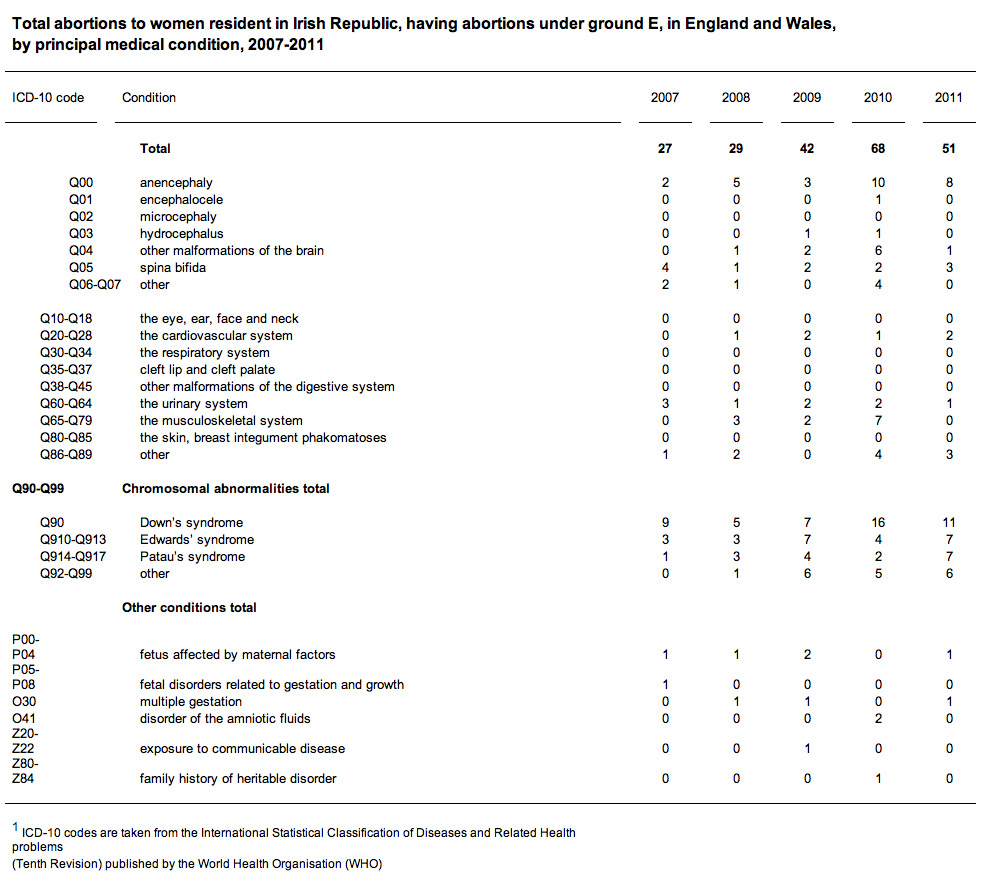A 'Fatal' Abnormality

Babies with life-limiting abnormalities have a Right to Life
Sadly, some parents are told that their baby may not live for long after birth, or might not make it to birth at all. But those children, until such time as nature takes its course, are alive and kicking, and have the same right to life as every other child.
Recently huge media attention has been given to legalizing abortion in Ireland for babies who have received a diagnosis of anencephaly, trisomy 13, or other conditions which may severely limit the life span of a child.
What you should know
Research shows that 90% of Irish parents DO NOT abort their baby following a life-limiting diagnosis. Those parents have then been able to spend precious time with their children - both while the baby was in the womb, and then for hours, days and sometimes weeks and months and even years after birth. (1)
These children do not suffer in the womb or after birth - that is absolutely untrue, since palliative care manages discomfort or pain the baby may feel after birth. Before birth, baby is protected from any pain in the womb.

Most children diagnosed with these disorders live beyond birth - and some continue to astound their families and doctors. For example, 70% of babies with anencephaly live after birth, and 30% of chilren born with Trisomy 13 live for longer than a month. Children with life-limiting disorders have a right to their life, however short that life may be, and however severe their disability. You can see some of their beautiful stories below. (2,3,4)
In stark contrast to the Irish experience, in countries where abortion is legal, up to 95% of children with a life-limiting diagnosis are aborted. (5)
Parents in this situation deserve much more than our sympathy - they need us to put professional support systems in place. The Minister for Health must establish perinatal hospice services in Ireland as soon as possible. Irish medical care will prevent any suffering that parents fear their children might endure after birth. (6)
In contrast to the loving answer given by perintal hospice, abortion ends the life of these babies by lethal injection or worse.
References
‘Although we have a pro-life identity, we do not have the healthcare that supports parents and newborn babies who have complex needs’. The Irish Times, 21 April 2012
Jaquier M, Klein A, Boltshauser E. ‘Spontaneous pregnancy outcome after prenatal diagnosis of anencephaly.’ BJOG 2006; 113:951–953
Mitchel L. Zoler, ‘Trisomy 18 survival can exceed 1 year’, OB/GYN News, 1 March 2003
Mitchel L. Zoler, ‘Trisomy 13 survival can exceed 1 year’, OB/GYN News, 1 March 2003
Mansfi eld C, Hopfer S, Marteau TM. ‘Termination rates after prenatal diagnosis’. Prenatal Diagnosis, Sept 1999.
http://www.ncbi.nlm.nih.gov/pubmed/10521836
90% Of Irish parents don't abort their terminally ill baby.
You may have read that most Irish women who are told their baby has been diagnosed with a serious or life-limiting abnormality go to the UK for an abortion. Figures as high as 80% have been suggested repeatedly - on RTE's Prime Time and in the Irish Independent.
Official records from the British Department of Health show that estimation to be wildly incorrect. There are approximately 700 diagnoses of serious or life-limiting abnormalities made each year in Ireland. Recently the Irish media claimed there were 1500, and that 80% of these babies are aborted - which would mean that 1200 abortions take place on Irish women in Britain every year under Ground E of the British Abortion Act - where there is a “substantial risk of the child being born seriously handicapped.” That is not the case. In fact it is wildly incorrect - an overstatement by a factor of 20. The records kept by the British Department of Health not only record all Ground E abortions on Irish women, but also record the condition diagnosed, and separate out conditions such as anencephaly, Trisomy 18 (Edwards Syndrome), Patau's Syndrome etc. As you can see from the Table released by the British Department of Health below, in 2011 a total of 51 abortions were carried out on Irish women for reasons of disability - including Down Syndrome, which is not a life-limiting abnormality at all.
In 2011, for example, 8 babies with anencephaly being carried by Irish women were aborted, 7 with Edwards Syndrome, and 7 with Patau's Syndrome. In 2010, the number was higher at 68 abortions; in 2009, it was lower at 42 abortions.
Clearly these figures are nowhere close to what is being claimed by abortion advocates. Only 61 of an estimated 700 pregnancies where the baby had a serious or life-limiting abnormality was aborted in 2011, for example. The figures show that more than 90% of parents facing a diagnosis of terminal illness for their unborn baby go on to bring their babies to term. If we change the law, that figure will be upended, to reflect the British reality where up to 90% of children, even those with conditions such as Down Syndrome, are aborted. These babies, and their families, deserve better than abortion.